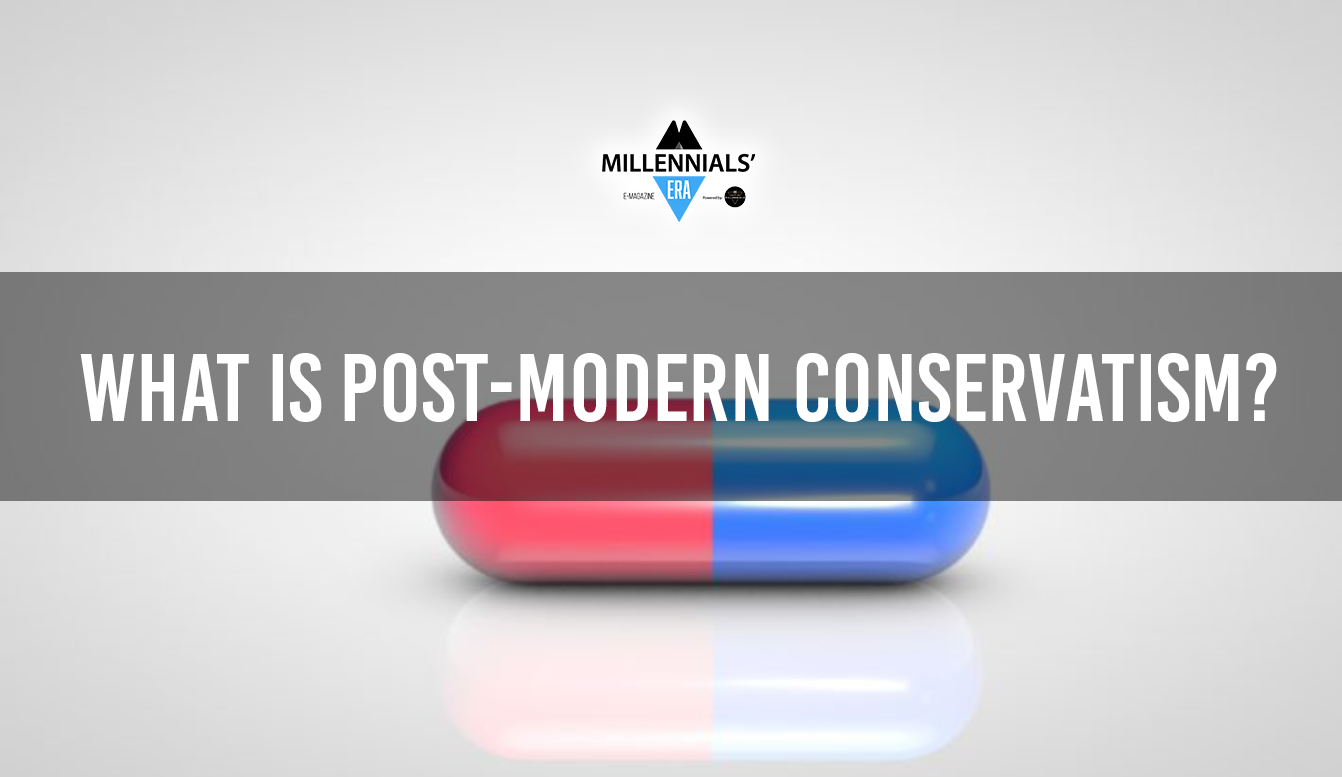
The discourse around post-modernity has centered almost exclusively on the politics of the political left. Much of this is spurred by a right-wing outrage machine with a seemingly bottomless desire to produce content about the excesses of social justice activism; truly we live in the epoch of the “SJW FAIL Compilation #99.” By now the “campus activism is evil memoir” has become a veritable literature unto itself going back to Buckley’s seminal God and Man at Yale. Everyone from Ben Shapiro to conspiracy theorists like Dinesh D’Souza has made a contribution to this hallowed genre. What has changed since the 1950s is the framing of this activism as driven by post-modern philosophy by intellectuals such as Stephen Hicks and Jordan Peterson. The general line runs that a series of (mostly French) philosophers have attempted to rebrand Marxism or socialism with sexy new terminology so opaque only a few people can actually understand it. This has inspired generations of students to pretend they do understand it, and march in protest against virtually every form of established order in the name of achieving complete “equality of outcome.” This superficial account misses the key point stressed by authors like Jean Francois Lyotard: the post-modernity and its associated skepticism and flirtation with nihilism is a cultural condition which emerged from the failings of modernism. It is no more the product of a few philosophical speculations than the American Revolution sprung fully formed from the pen of Benjamin Franklin. Once we understand how post-modernity is a cultural condition which impacts us all, we can better appreciate how the politics of the era are transformed on both ends of the conventional political spectrum.
In 2016 Donald Trump shocked the liberal world when he was elected President of the United States. In the years since this zeitgeist changing event, the Trump administration has become infamous for its xenophobic policies, near constant dishonesty, and relentless attacks on the media and other “liberal elites.” This has been coupled with a relentless skepticism towards facts and arguments which deviate from Trumpist doctrine: “truth is not truth,” as Rudy Giuliani put it, if the truth isn’t convenient.
That is the reason why one as an individual regardless if pertaining the Millennial group, Boomer or any other generation group we must stay critical of the meere substance of the narrative of our leaders. Many have wishes and hopes on our current leaders due to social pressure or what we now believe has been normalize in moral matters, but it is always good to stay back and analysing if what we have is going to lead to the best outcome for our countries, our society and the rest of the world.

Jacques Derrida couldn’t have said it better. The emergence of this new kind of post-modern conservatism is an unprecedented retreat from the genuine complexity in the world, and has deep roots in the structural tensions latent in neoliberal societies. Neoliberal society was the culmination of a process centuries in the making, where capitalism corroded traditionalist modes of living to establish a global system amenable to the free movement of capital and labor. Concurrently, the spread of liberalism as the only viable ideology at “the end of history” undermined the political tenability of comprehensive moral doctrines-especially religious doctrines-on the principle that individuals should be free to live their lives as they see fit so long as they integrate effectively into the economic order. For many groups this was an emancipatory development: opening spaces for women, LGBTQ individuals, and ethnic minorities to participate in politics and the economy in an unprecedented way. But these developments also corroded the traditional “sources of the self’ on which many relied to make sense of their identity and communities. The consequence was the reactionary politics we now see across the globe.
The more reactionary amongst them turned to post-modern conservatives like Trump who promise to restore an era of certainty and stability; though of course without challenging the underlying economic forces which contributed to instability. They project a pastiche like ideal of the “real” national citizen, whose authority and privileges have been undermined by a series of progressive enemies allied with foreigners and others who do not belong. Post-modern conservative leaders ask their followers to grant them the authority and faith to restore a nostalgic image of the past through eliminating or silencing these opponents.
All while deploying strategic skepticism towards any arguments or facts that smack of liberal or progressive values and risk further destabilizing the world. In the era of COVID-19 they now pose a real danger to the lives of their own citizens, as this strategic skepticism extends even to the scientific facts about the virus, which has the potential to undermine the smooth functioning of capital and might inspire a movement towards more progressive social policies. It has never been more essential to strike back at these figures through organizing and critique.







